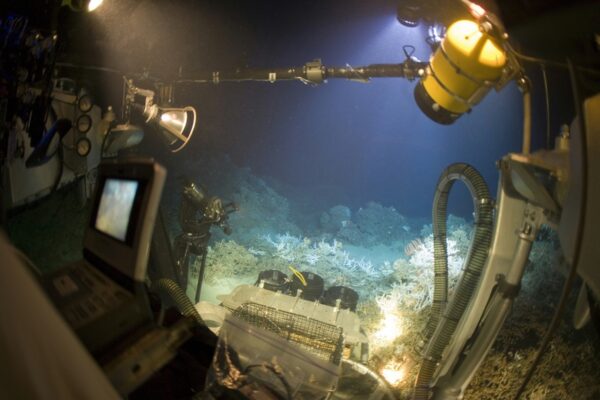The All Party Parliamentary Group (APPG) for the Ocean has published the inquiry report “The Ocean: Inquiry into the Future of Ocean Technology”, which highlights “the huge, potential that ocean technology can bring to UK marine science, discusses the current challenges in developing and scaling ocean technology, and provides key recommendations to Government focused on improving data, international collaboration, leadership and funding”.
Following a call for evidence in summer 2023, the report concluded that ocean technology is crucial to shaping the future of the ocean. The UK, as an island nation with significant research centres and capabilities, is well-placed to be a global scientific leader in this space.
Over the past decade, ocean technology has rapidly advanced, with significant developments in big data, autonomy, renewables, carbon capture and storage, and blue carbon. Such technologies are leading the transformation in the way in which we observe, measure and predict how the ocean behaves.
The inquiry identifies a number of significant barriers currently preventing the full potential and benefits of ocean technology from being realised.
Photo: NOAA
Roundtable to launch report
To mark the release of the APPG for the Ocean’s latest inquiry report the APPG held a roundtable in Parliament, bringing together parliamentarians and stakeholders to discuss the key findings of the report.
The roundtable, chaired by the Chair of the APPG, Sally-Ann Hart MP, discussed the role government can play in ensuring that the potential of ocean technology and the role it plays in climate change mitigation, is fully realised. The APPG for the Ocean was pleased to welcome representatives from the National Oceanography Centre, Blue Marine Foundation, UK Marine Energy Council, British Antarctic Survey, Plymouth Marine Laboratory, Planetary Technologies and the Society of Maritime Industries to this event.
The inquiry makes 10 recommendations to Government and is calling on the UK government to establish a clear and comprehensive strategy and framework to foster research, development and innovation.
Some of the other key findings taken from the report include:
- we are currently undergoing a revolution in ocean technology, or at the very least, we are on the precipice of significant change. However, several barriers exist which are continuing to impact efficiency, uptake and progress. If not addressed correctly, these barriers will certainly impact the success and future of ocean technology.
- Previous attempts to regulate and drive investment in this space have been disjointed and lacking in ministerial direction, with the majority of marine science bodies and groups being disbanded and dissolved.
- There have been rapid technological advancements made in the ocean technology space, both in the UK and globally. From satellite technology to underwater vehicles, to buoys and gliders, growing investment in tidal and wind technology, powerful data sharing and blue carbon ecosystems such as mangroves, tidal marshes and seagrass habitats, technology is allowing us to build a fuller picture of the day-to-day workings of the ocean.
- There are several key challenges which are limiting the development and potential of ocean technologies from being fully realised. The most pressing and significant challenges relate to the limits on research, data and the use of current technology, lack of grants and sustainable funding, the need for improved international collaboration, a worsening skills shortage and lack of government attention.
- There is a clear role for the UK Government to play in driving technological innovation in the ocean space, by ensuring greater and long-term investment in ocean technology, tackling the widening funding gap and skills shortage and by supporting the sector and businesses in building international partnerships.
Further information on the AAPG for the Ocean can be found here and a press release from PML here. The full report The Ocean: Inquiry into the Future of Ocean Technology can be read here.
